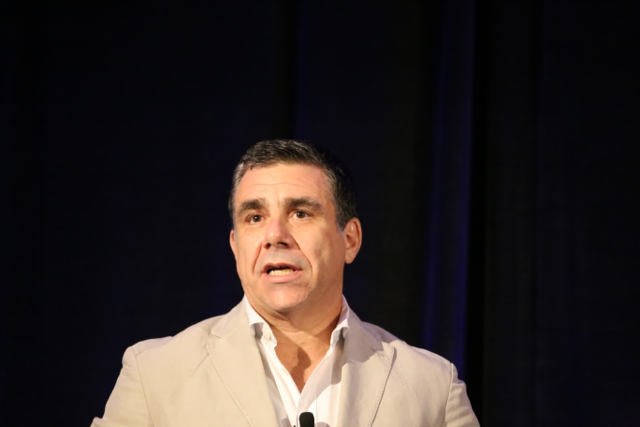HGST (formerly Hitachi Global Storage Technologies), a leading producer of enterprise storage solutions, and a Western Digital company, is announcing the world’s first enterprise-class 10TB hard disk drive (HDD) for cool/cold storage applications. Mike Cordano, President of HGST, this morning introduced this HDD in San Francisco.
HGST achieves unprecedented capacity leadership by utilizing two complementary technologies: HelioSealTM technology and host-managed Shingled Magnetic Recording (SMR). Combining these two technologies allows HGST to achieve the lowest $/TB and watts/TB of any large capacity rotational drive.
As the storage industry continues to push device capacities higher and higher, moving to a helium-sealed HDD technology becomes essential to ensuring the reliability of such large capacity HDDs. As the first and only producer to ship a hermetically-sealed and helium-filled HDD, HGST’s HelioSeal platform provides the highest capacities while significantly reducing cooling and power requirements. Going forward, all future HGST enterprise-capacity HDDs will be built on the HelioSeal platform to better serve the capacity and efficiency needs of evolving data centers.
As the amount of data that has moved past its “create-and-modify” stage and into a “cool/cold storage” stage continues to increase, the ability to store this data in an efficient and low-cost manner becomes paramount. Examples of this would be active archives, cloud storage, and audio/video media storage that requires long-term retention.
Shingled Magnetic Recording (SMR) was named after roof shingles. With SMR, relatively wide tracks are written to the disk and subsequently written data tracks partially overlap the previous ones, similar to the manner in which roofing shingles are applied. With careful design and execution, SMR is expected to enable data densities as high as 3 trillion bits per square inch. It is currently the plan-of-record for next-generation products across the industry.
HGST is currently sampling the 10TB HelioSeal SMR HDDs with select partners.
 The SSD Review The Worlds Dedicated SSD Education and Review Resource |
The SSD Review The Worlds Dedicated SSD Education and Review Resource | 


With the big jumps in HD storage capacity over the last year I have to wonder if we’ve reached the point where drive data can no longer be retrieved by the data recovery labs. How would a lab open up a sealed, helium-filled drive to work on it? Reliability becomes much more critical at these capacities.
I could imagine that if it were really necessary they could could open in up in a fume hood type device filled with helium
Wow, first 5TB drives, then 6, and now 10TB! Pretty crazy fast advances in a year that has a whole quarter left.